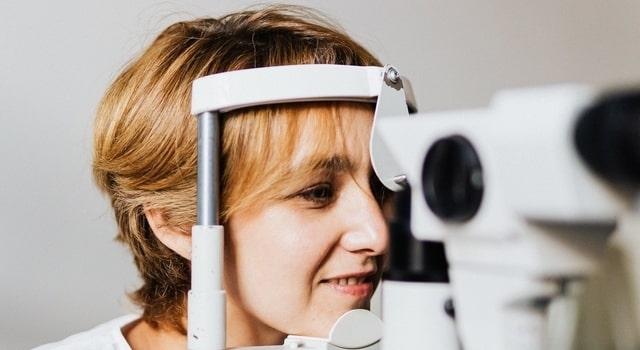
Empower yourself by understanding the difference between an eye exam and a vision screening. This knowledge is crucial when maintaining good eye health. While both are important, they serve different purposes and provide different levels of insight into your eye health. In this blog, we will explain the distinctions between these two procedures and highlight why comprehensive eye exams are essential for long-term vision care.
What is a Vision Screening?
A vision screening, or vision test, is a quick and basic test to identify potential vision problems or eye disorders. Often conducted by school nurses, pediatricians, or during health fairs, these screenings typically involve simple tests like reading letters on an eye chart (visual acuity) and checking for refractive errors such as nearsightedness, farsightedness, and astigmatism. Vision screenings help detect obvious vision problems such as blurry vision but do not comprehensively evaluate your eye health.
What is a Comprehensive Eye Exam?
In contrast, a comprehensive eye exam is a thorough assessment performed by an eye doctor. This detailed eye examination evaluates not only your vision but also the overall health of your eyes. During a comprehensive eye exam at Infinity Eye Care, you can expect several key components:
- Visual Acuity Test: Similar to a vision screening, this test measures how well you can see at various distances
- Refraction Eye Exam: This test determines your prescription for corrective lenses such as glasses or contact lenses
- Eye Muscle Test: Assesses the strength and control of the muscles that move your eyes
- Visual Field Test: Checks for blind spots or peripheral vision issues
- Slit-Lamp Examination: Examines the structures of your eyes in detail using a special microscope
- Glaucoma Test: Measures the pressure inside your eyes to detect glaucoma
- Retinal Examination: Inspects the back of your eyes to check for signs of diseases such as diabetic retinopathy or macular degeneration
These components are critical in detecting eye conditions that a simple vision screening might miss. These include early signs of eye diseases that can lead to vision loss if left untreated.
Why Comprehensive Eye Exams Are Essential
While vision screenings help catch immediate and apparent issues, they are insufficient to ensure long-term eye health. Regular eye exams are essential because they:
Detect Eye Diseases Early: Many serious eye conditions, such as glaucoma and macular degeneration, develop without noticeable symptoms in their early stages. Early detection through a comprehensive eye exam can lead to timely treatment and better outcomes.
Monitor Overall Health: The eyes are windows to your overall health. We can detect conditions like diabetes, high blood pressure, and certain cancers through eye changes.
<H2> Making Informed Decisions About Your Eye Health
For adults of all ages, especially those who have only experienced basic vision screenings, it's crucial to understand the value of comprehensive eye exams. By making informed decisions about your eye health, you are taking a proactive step towards maintaining good eye health and preserving vision.
At Infinity Eye Care, we are committed to providing the highest standard of eye care. We use comprehensive eye exams to understand your eye health and promptly address any issues.
Seize Control Of Your Sight Today
Understanding the difference between eye exams and vision screenings is the first step towards taking control of your eye health. While vision screenings are an excellent initial check, they should not replace comprehensive eye exams, crucial for detecting and addressing a wide range of eye health issues.
Prioritize your eye health today by requesting a thorough eye exam at Infinity Eye Care. Be sure to notice a problem — early detection is vital to preserving your vision.
